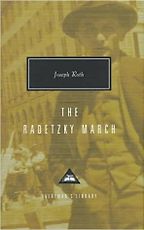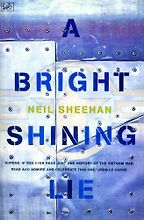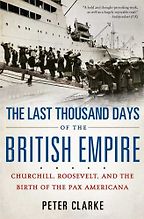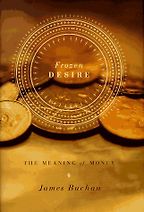Were you thinking of America’s present troubles when you chose to talk about the death of empires?
Not necessarily. All empires are obsessed with the prospect of their own decline. It may be that by the time they imagine their decline, it’s already begun. From what I understand, almost as soon as an empire is recognised as an empire, its decline has begun. It becomes a thing that people play around with as a concept rather than a thing created as a by-product of specific tasks. Now the Americans are concerned that their situation as the greatest power on earth is under threat. And it is under threat.
But is America an empire? It doesn’t like to think so. But the extent to which it falls short of an empire, positive as it may be from the point of view of democracy, may actually be making America’s task more difficult. You can see this in Afghanistan, where it has the military power to maintain order, but no equivalent of the civilian administration that the Romans, the Ottomans or the British were able to bring to bear.
America refuses to govern?
It refuses to govern, and it may be that future historians conclude this was one of the reasons for its diminishment. But, of course, we are talking about America as if all Americans thought the same way and that would be a mistake. There are Americans who take pride in the power of their military to intervene overseas, and Americans who take pride in being standard-bearers of liberty, and many Americans who take pride in both, though this is a contradictory position.
“All empires are obsessed with the prospect of their own decline.”
But there are many more sorts of empire than the imperial nation state. You could say the European Union is an empire and, actually, quite an expansionist empire in a way that the Americans are not. And then, of course, there are business empires: Google and Microsoft and so on…
Your first book?
Joseph Roth’s The Radetzky March. It’s a novel covering three generations of an Austrian family, beginning in the mid 19th century and ending in 1916. But it concentrates on the last generation.
The generation that saw the collapse of the Austro-Hungarian Empire?
Yes. It’s a fascinating story and, of course, one that’s less well-known to us than the British story. One of the things that interests me about the Austro-Hungarian Empire is that it’s an early reflection of the European Union. It had the same problem with language. I remember reading in a book by Norman Stone about this thing called the Kommandosprache, which they used to have in the Austro-Hungarian army. All these different regiments were made up of different nationalities, and most of the men spoke different languages. The Kommandosprache was the dozen words they needed to know: shoot, don’t shoot, present arms, that sort of thing. For everything more subtle there was the regiment’s own native language. There was even one regiment that spoke English. The EU doesn’t have an army, but it has related problems, and no Kommandosprache.
When I wrote The People’s Act of Love I had a Jewish character who emerges from the First World War as an officer in a regiment of free Czech and Slovak soldiers, but nevertheless, unlike his Czechoslovakian comrades, mourns the collapse of the Austro-Hungarian Empire to which they all once belonged. I hadn’t read The Radetzky March then, but when I did, I was relieved to find out that I had been right.
The novel was written by a Jew, and it’s suffused with this elegiac spirit. It’s certainly not a criticism of the Austro-Hungarian Empire. It is, as all great novels are, an elegy for the folly of humanity, but it’s no kind of indictment. It’s a lyrical summoning of a remarkable world, a balance between so many ethnoses, and the thing that brought them together more than anything else, as is usually the case with empires, was the military. The generations in this book are military men.
You understand through them that the centre of the empire is not Vienna but the provinces, and that at the eastern edge of the empire, the supposed line dividing us, the Austro-Hungarians, from them, the Russians, is not so much a border as a shading, a merging, a swampy world of doubt, distrust and lassitude. There’s just a crowd of wild Jews straddling the border who have powerfully ambivalent feelings about both the Austrians and the Slavs.
What about your second book: Neil Sheehan’s A Bright Shining Lie?
It’s about the Vietnam war and it’s a masterpiece, a stone cold masterpiece. An amazing book. There’s this comparison between Vietnam and Afghanistan that’s been made so much, but it’s apposite. For a start, I think there’s a lot to be said concerning parallels between modern western perceptions of Islam and past perceptions of Communism.
What Neil Sheehan shows is the patriotic dimension of the struggle from the Vietnamese point of view, that this is really what it was about, much more than Communism, just as in Afghanistan it is more about Pashtun identity than about Islam. Communism was a means of rallying and systematising a patriotic movement. It’s often said, but never seems to be taken on board by people at the top level, that in Afghanistan, Pashtun nationalism and the identification of Pashtun customs with Islam is the driver of resistance to the West.
Sheehan’s brilliant telling of the Vietnam story through the career of one man – John Vann – makes comparisons to Afghanistan impossible to avoid: the handing of an effectively free mercenary service to a corrupt government, the ability of the north Vietnamese to retreat to and be supplied from places where it was politically difficult to engage them directly, the way that the Americans, if they’d had less money, would have been forced to engage more with the population. Instead, in Vietnam and now in Afghanistan, they create little bubbles. American bases in Vietnam had ice-cream shops and burger shops. When Americans go to war, they literally project their own maps on to the landscape. They rename all the roads and landmarks with their own codenames. It’s at the root of their apprehension of a foreign environment to shut it off.
Your next book takes a number that empire builders like to pluck out of the air to indicate splendid longevity, and turns it on its head…
The Last Thousand Days of the British Empire by Peter Clarke. Yes. A very explicit title. It begins in the middle of 1944 and ends with Indian independence. It’s a fascinating book if you’re British, American or Indian. It has to be said that it’s not always an easy read. Some of the blow-by-blow accounts of conferences can be dry. You feel, if only I knew where to skim. But on the whole it’s a fascinating book and it told me what I needed to know about what actually happened to this country at that time.
It’s a very sad story. It’s more despair than anger, and mostly despair at Winston Churchill. It’s a very bleak portrait of the prime minister. His obstinacy with regards to India, his belief that purely through his charisma he could keep Britain as a world player alongside the Soviet Union and America.
Your fourth book?
Frozen Desire. It’s a very unusual book – wonderfully written, amazing prose, generally chronological. James Buchan talks about what money is and its use. But he also adds this extra layer, which is his own experience of money. And you know, bitterness is a flavour and the fact that his reminiscences have a surprisingly bitter flavour add, I think, to the charm of the book.
But it’s specifically to do with empires. I’ve read the story, in different places, of how the great influx of treasure from the New World destroyed Spain – all this silver flooding in. Buchan tells it better than anyone. They had all this pure money and they thought it made them rich, but it didn’t. Its value disappeared with inflation. The money came in and then it flowed out again. It’s perhaps facile, but tempting all the same, to make a comparison with the Americans, and the way that their great wealth has passed on to China, then been borrowed back from China and spent again. The difference is that China is keeping America’s inflation on ice for it.
You’ve chosen Italo Calvino’s Invisible Cities for your final book. It has a metaphysical ring…
It has different layers. The set-up is that Kublai Khan has conquered this vast empire; an empire so large that he, sitting at the centre of it, cannot know all the many parts of it. He can’t visit them, he can’t see them, and if he goes to one part all the other parts have changed. So he sits there at the centre of his empire and Marco Polo travels around and visits the various cities and comes back and describes them to Kublai Khan.
As you read it, you realise that, in fact, these cities are very narrowly described. There are short lyrical descriptions which conform to categories. There are cities of the dead, floating cities … and within these categories the cities are described in terms of one thing. So one of the cities of the dead is actually underground, a grave city. Another one is a city composed entirely of plumbing. One of them is a city in two parts – one part is the law courts, the ministries, the mayor’s office; the other is the circus, the fairground, the amusement park. And every year the permanent part of the city stays the same and the temporary part moves along. So once a year the mayor’s office and the law courts are dismantled and moved to another city…
Then you realise that on another level Marco Polo is simply describing his own city, Venice, the only city he really knows. He is describing different aspects of the same generic, universal city, a city for all times and all places, as if they were many different cities.
And then there’s a third level, and on this level things get literal again, which is relevant to what we’re talking about. Because what Calvino is saying is, that in order to control an empire what you need are two, completely contradictory, mutually cancelling qualities. What it requires of you is the ability to imagine, to fantasise – but also to know the real facts of what is going on. You can’t get by with the facts alone, because you cannot possibly know them all, and so you need great imaginative power, but neither can you get by with imagination alone, because you must know what people are actually thinking. All empires are doomed to fail for this reason. Their rulers are either overwhelmed in detail or betrayed by the failure of their imagination.
February 3, 2010. Updated: April 18, 2024
Five Books aims to keep its book recommendations and interviews up to date. If you are the interviewee and would like to update your choice of books (or even just what you say about them) please email us at [email protected]
Five Books interviews are expensive to produce. If you've enjoyed this interview, please support us by donating a small amount.










